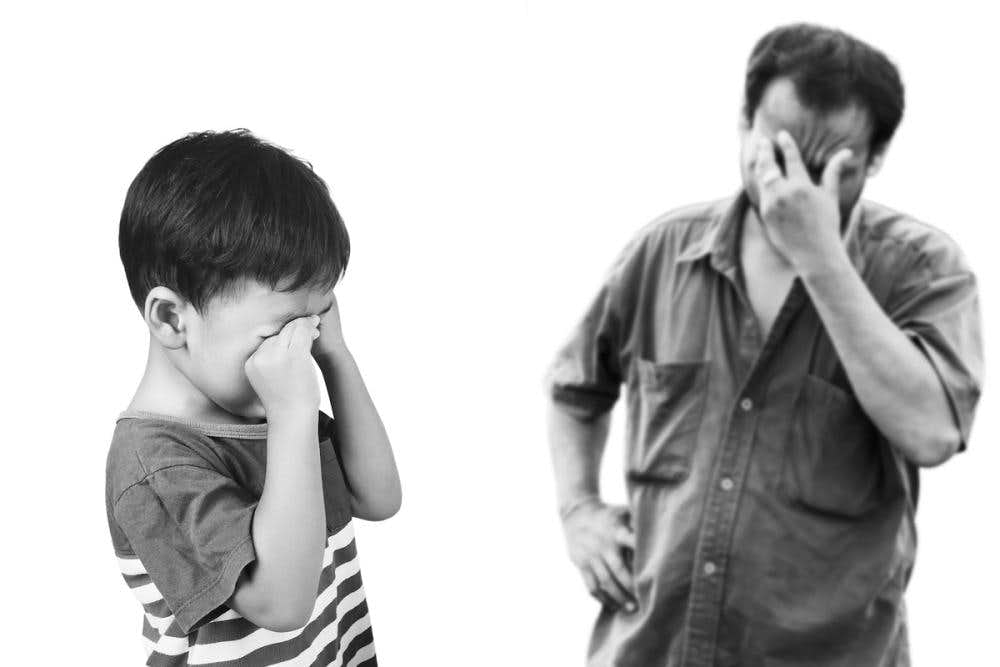April 14th, 2020

“We're hard on each other because we're using each other as a launching pad out of our own perceived deficiency”
Brene Brown, PhD MSW
Like many other facets of life, the way we go about raising our children can often be judged or scrutinized. According to Zero to Three, “nearly 9 in 10 parents across the board feel judged (90% moms and 85% dads), and almost half say they feel judged all the time or nearly all the time (46% moms; 45% dads)”.
These judgments can come from other parents relatives, friends, or strangers alike. While enough pressure exists for a mother or father to implement all the necessary love, lessons, and attentiveness to ensure a great life for their child, that pressure can be multiplied by the magnifying glass of other parents in the same or differing circumstances.
Perhaps we too have been guilty of developing our own opinions regarding the way others embrace parenthood, and in a similar way make judgements of others. According to The List, some of the parenting subjects that are most commonly judged include attachment parenting, being friends with your child, safe technology use, and bottles versus breastfeeding.
Scientific research gives reason as to why a parent can be so willing to judge another parent. A parent following their intuition is one of the first likely causes. According to cafemom.com, “Boston College psychologist Liane Young explained to Live Science, that the human brain is actually designed to make moral judgments, with the ventromedial prefrontal cortex (an area between and behind the eyes) in charge of the emotional aspect”.
As human beings, we’re designed to experience “gut intuition” that can oftentimes be felt at the sight of another individual’s parenting choices. Which, according to Young, “is why oftentimes our own moral judgments feel very robust”.

Another motivation for parent-to-parent judgment is perhaps one of the most common; everyone’s insecurities. Raising a child can put us in an incredibly vulnerable place like we’ve never felt before, and while there are many modern-day informational books to ease some of that discomfort, there truly is no official “how-to” manual. Seeing other parents doing things differently with their children can trigger some of this insecurity in ourselves and in an effort to deflect we turn to judgment.
The last driving force of parents judging other parents is the concept of doing what’s been done to them — a vicious cycle if you will. In 2017 Beech-Nut baby food brand, launched a campaign called "Turn the Labels Around". After surveying 1,000 American women online, Beach-Nut reported that “moms who have experienced shaming are more likely to shame another mom”. This biological instinct can often occur shortly after a parent has been shamed or judged themselves.
While it may seem like the right thing to do at the time for a child’s sake, passing judgment on another parent, or furthermore criticizing their parental choices, can be damaging for those being judged and their children. As stated by Claire Lerner on zerotothree.org, “Criticism makes parents feel incompetent and makes it more likely they will react in ways that are harsh. This leads to children feeling ashamed and bad—leading to more negative child behaviors. It’s a lose-lose all the way around”.
Additionally, according to Psychology Today, “judging others can easily slide into just another judgment about yourself”. Essentially, judging others has as negative an impact on yourself as it does on the other person.

Finally, one parent judging another prevents an opportunity for lessons or an opportunity for growth within our own parenting efforts. As human beings, we develop our perspectives and opinions based on what our personal experience has been.
Perhaps a parent you know has vastly different life experiences than you or I, thus, they’ve developed an understanding that we may not have. While there is always a basis for "right and wrong", developing a parenting style is an entirely personal and authentic journey.
While we may not agree or find that some techniques that suit others do not suit ourselves or our own children, we can avoid the negative consequences of judgment by respecting those differences.
If we’d like to see an improvement in the growing trend of parents judging other parents, we can begin to enforce change by beginning with ourselves. Positively Present has developed six basic ways to stop our judgment:
1. Monitor your thoughts. Pay attention to your thinking and become conscious of what thoughts enter your mind, and which you’re paying the most attention to.
2. Look for the positive. “While my mind might immediately focus on the negative, I can push my thoughts in a more positive direction and look for something nice to say”.
3. Avoid stereotyping. Parenting styles and techniques come in all different forms, and assuming a “type” or particular genre of parenting of another person’s behavior can be harmful.
4. Stop judging yourself. If you don’t want to be hard on others, give yourself that same right.
5. Focus on your own life. The way other people care for their children doesn’t affect you or your own children, so maintaining focus on your own family is to your benefit.
6. Remember how it feels. We can all refer to a time and place where we felt judged, whether or not it related directly to parenting or not. If we can empathize with that feeling for a moment, it adds significance to the idea of doing it to someone else.
Being a parent poses tremendous challenges along the way as it is, less judgment and more acceptance can enhance the parental experience for us all!

Our Services
Virtual/Online CarePHP and IOPAdult PsychiatryChild & Adolescent PsychiatryAdult TherapyChild & Adolescent TherapyCouples CounselingFamily TherapyGroup TherapyPsychological TestingTranscranial Magnetic Stimulation (TMS)Resources
Refer a PatientCareersClinical Training OpportunitiesOur ProvidersFree Mental Health TestsCommonly Prescribed MedicationsLocationsBlogIn The NewsClarity Through CharityClarity for AllQuick Links
Patient PortalFAQsAccepted InsurancesContact us